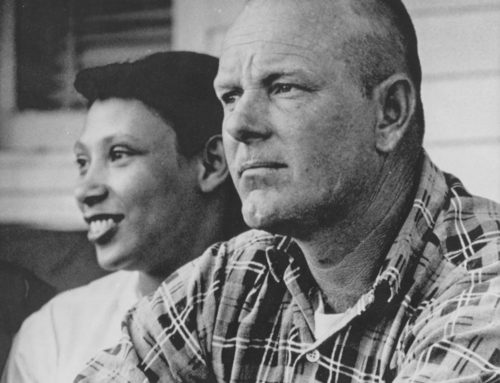Another 8 x 10” envelope arrived today, the last in a series of ten. The contents of this envelope are of no surprise. Another college has accepted my daughter Chloe, making for ten of ten. The list reads like a who’s who of design schools in the country. She has worked hard and has earned this. Chloe shrieks with excitement as she reads the letter but under the layer of excitement I feel for her is a decidedly selfish thought: What will I do when the day comes that the love of my autumn days has spread her wings and gone? “I’ve been accepted to Pratt!” I hear it in the same five-year-old voice that screamed with excitement about the new bike that came on Easter that year, a year which seems only days ago.
I remember the day that my father dropped me at college. Bethel, being in the Twin Cities, was a good 5 to 6 hour drive from Milwaukee but he insisted on driving me up only to turn around and drive back the same day. On the way he was, as usual, full of wisdom; wisdom that I, as usual, was only half listening to. My head was predictably and appropriately full of giddy anticipation of my years at college. Bethel presented my first opportunity for a modicum of independence – perhaps more so than other kids because my early years were filled by enormous amounts of supervision, scrutiny and criticism, be it from my mother or from the extremely strict schools I was sent to. I had not been allowed to make my own decisions or my own mistakes to learn from and therefore was poorly equipped to launch into the world of independence.
While my father said many things to me that day the one that stands out in my mind is “this is a passing of an era” and that “someday, when you have a child, you’ll understand the full impact of what we are doing today.” That day is nascent for me now and today’s letter serves as a harbinger of it. I do now have a great appreciation for what my dad must have been feeling that day.
The most difficult thing in my life has been being separated from my daughter half of the time. It was not something I planned nor wanted. The prospect, then, of facing her leaving for college pangs at my heart and can instantly put tears behind my eyes.
Victor Hugo’s tome, “Les Miserables” has made another tour through popular media via a mediocre film version of the popular Broadway musical. Somewhere beneath the heavy-handed directing, cartoonish special effects and an army of actors who can’t sing, still beats the heart of one of the greatest stories ever told. Jean Valjean serves 19 years in prison at hard labor for stealing bread to feed his starving niece. Upon parole he quickly turns to crime when he steals the house silver from a priest who unlike others took him in from the freezing cold, fed him and housed him. Valjean is granted a second chance when the priest not only excuses his crime but also lavishes upon him extra pieces, the best pieces, of silver in the house. The priest asks but one thing – “use this silver to better your life and to contribute to the welfare of the world”.
But remember this, my brother –
See in this some higher plan.
You must use this precious silver
To become an honest man.
Jean Valjean was given a second chance in life. Unlike most we encounter he proceeds in life keenly aware of not what he lacks, but what he has. There is something about the ability of those who have lost all that they loved to see with new eyes all that they have. Jean is better than his word, not only does he become an honest man, he builds a life that contributes in the greater sense of the word. Valjean promises an oath to dying Fantine to raise her daughter Cosette as his own. She is his constant companion and he succeeds in raising a daughter who herself cherishes what she has and recognizes the relationship with her “papa” as chief among those assets.
Javert, a jean darn obsessed with the letter of the law, doggedly pursues Valjean, who broke his lifetime parole to make a new life. In stark contrast to the life of Valjean, Javert is whole-heartedly consumed in a singular pursuit; to find Valjean and return him to prison. Ultimately Javert casts himself to his own death after taking a lifetime to learn the emptiness of his goal.
And must I now begin to doubt
Who never doubted all those years
My heart is stone and still it trembles…
The world I have known is lost in shadow
It’s fair to say that Valjean faced many challenges; 19 years in prison, the fear of Javert’s pursuit and perhaps most significantly the fear that his beloved Cosette might somehow be compromised by his past. Cosette falls in love with young Marius, a self-proclaimed French revolutionist. Cosette and Marius are separated as the revolutionaries stake their ground.
I did not live until today
How can I live when we are parted?
Upon discovery of this love Jean saves Marius from certain death, even confronting Javert himself to retrieve Cosette’s love. Valjean though now faces separation from Cosette for the first time and like me, and my father before me, was fully aware that this day would come.
What will I do without the love of my autumn days?
Of all of the perils and tribulations faced by Jean, separation from a love is the one he dreaded most. He was, in fact, willing to return to prison at the hand of Javert if only to avoid any impact to Cosette.
How do we face separation from the ones we love, which so often is cast upon us beyond our will? How do we, filled with empathy, revel in the comfort that a great purpose is indeed manifest in that now, better equipped, our love flies free? For the answer to that we need look only to the dying words of Jean Valjean:
And remember
The truth that once was spoken:
To love another person
Is to see the face of God…






